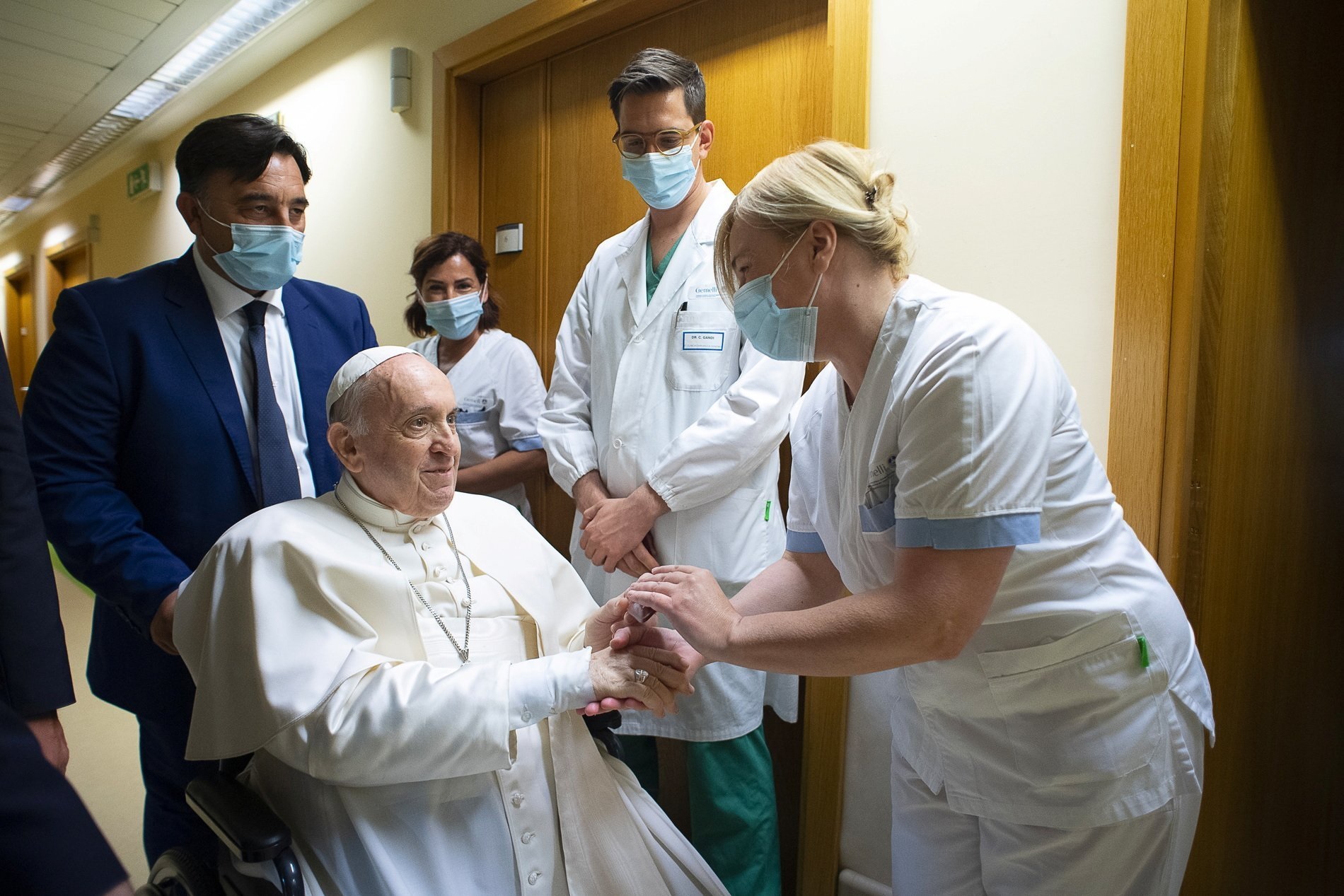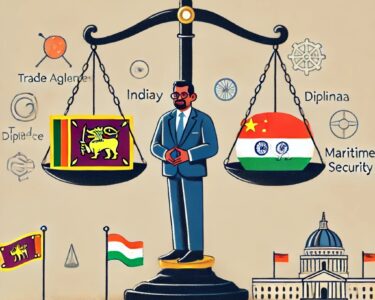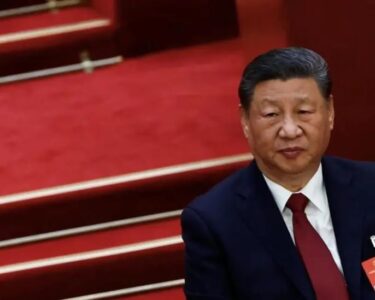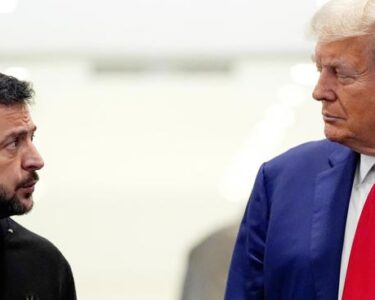Pope Francis is currently battling a serious respiratory infection and is in Rome’s Gemelli Hospital. The doctors are closely monitoring his condition and adjusting his treatment. The Vatican has assured everyone that he is in “good spirits,” even though he is still in the hospital. His weekly appearances in St. Peter’s Square have been paused, and his absence was deeply felt by pilgrims. Despite his illness, Pope Francis remains strong, making phone calls to parishioners in Gaza and expressing gratitude for the prayers and support he has received.
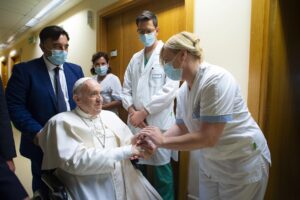
Pope Francis’ health issue is just one part of a long journey filled with challenges as the leader of the Catholic Church. He has faced resistance, criticism, and even physical attacks. These experiences have shaped him into the compassionate and understanding leader he is today.
Facing Resistance for a Simpler Papacy
When Pope Francis was elected in 2013, he faced skepticism, especially from conservative groups within the Church. His choice to live in a simple guesthouse instead of the luxurious papal apartments was seen as a break from tradition. Some critics felt that his humility was undermining the papacy’s symbolism. His calls for a more inclusive, humble, and reformative Church challenged the established norms, causing fear among many that his progressive stance might dilute Church doctrine.
A Progressive Stance Under Fire
In 2015, Pope Francis’ progressive views on climate change sparked criticism, especially after he released his encyclical Laudato Si’. Conservative economists and political figures accused him of pushing a “liberal” agenda, arguing that his views on climate change, economic inequality, and environmental responsibility were political rather than spiritual. Despite the criticism, Pope Francis remained firm in his commitment to justice and compassion.
His support for LGBTQ+ individuals and marginalized groups also led to opposition from those who believed he was endorsing positions contrary to Catholic teaching on marriage and sexuality. His focus on mercy over condemnation alienated some who believed in a stricter interpretation of doctrine.
Leadership Amid Scandals
In 2018, Archbishop Carlo Maria Viganò accused Pope Francis of covering up sexual abuse within the Church. This public confrontation led many to question his leadership and handling of the clergy sexual abuse scandal. Despite the allegations, Pope Francis remained committed to transparency, accountability, and justice for the victims. His determination to reform the Church highlighted his unwavering commitment to truth and healing.
Facing Physical Threats
Pope Francis has also faced physical threats. In 2015, during a visit to the Philippines, an individual attempted to strike him in the face while he was in a crowd. The would-be attacker was quickly subdued by security, but the incident was a chilling reminder of the dangers the Pope faces while connecting with the faithful.
Global Criticism and Pandemic Response
The COVID-19 pandemic presented new challenges for Pope Francis. His calls for solidarity, compassion for the poor, and an ethical response to the pandemic’s economic fallout met with resistance from certain political leaders. His call for vaccine equity, ensuring that poorer nations had access to vaccines, was particularly contentious.
Pope Francis’ efforts to mediate the conflict in Ukraine and his outreach to both Ukrainian and Russian leaders in 2022 earned him both praise and criticism. Some viewed his attempts at diplomacy as a sign of weakness, while others lauded his commitment to peace and reconciliation.
A Man of Humility Amidst Adversity
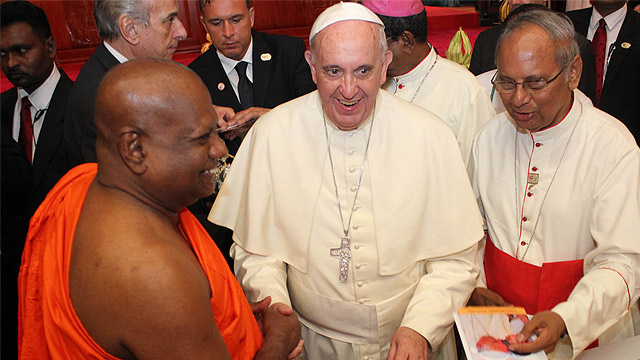
Through all these challenges, Pope Francis has remained true to his calling. Despite the attacks, illness, and global expectations, he continues to serve as a beacon of hope for millions. His leadership is defined by humility, compassion, and an unyielding commitment to justice and peace. Even as his health falters, Pope Francis continues to embody the ideals of mercy, working tirelessly for the most vulnerable.
Pope Francis has a special connection with Sri Lanka. In January 2015, he visited Sri Lanka, meeting with bishops, celebrating Mass, and engaging in interreligious dialogue. More recently, he met with a delegation of victims from Sri Lanka’s Easter bombings at the Vatican, showing his compassion and solidarity. He urged for the truth behind the attacks to be revealed, highlighting his deep empathy and commitment to justice and healing.
As Pope Francis continues his recovery, the world watches with hope, not just for his physical healing, but for his unwavering example of resilience, humility, and the power of love in the face of adversity. His papacy, marked by personal sacrifice and courage, reminds us that true leadership comes from serving and healing with an open heart. Through the storms, Pope Francis stands firm, a simple man with a profound impact on the world.
Who Will Be The Next Pope?
If Pope Francis is unable to continue his leadership due to health issues, the selection of a new pope would follow the traditional conclave process. Cardinals from around the world would gather in Vatican City to cast their votes in the Sistine Chapel, a procedure last seen in 2013 when Pope Benedict XVI stepped down. While no clear successor has been named, several prominent cardinals have been speculated as potential candidates, including Cardinal Pietro Parolin, Cardinal Luis Antonio Tagle, and Cardinal Robert Sarah. Cardinal Malcolm Ranjith from Sri Lanka is also among those considered a possible contender. Known for his strong stance on church reforms and his deep commitment to conservative values, Cardinal Ranjith has played a significant role in the Catholic Church in Asia. The decision will ultimately be made by the College of Cardinals.



